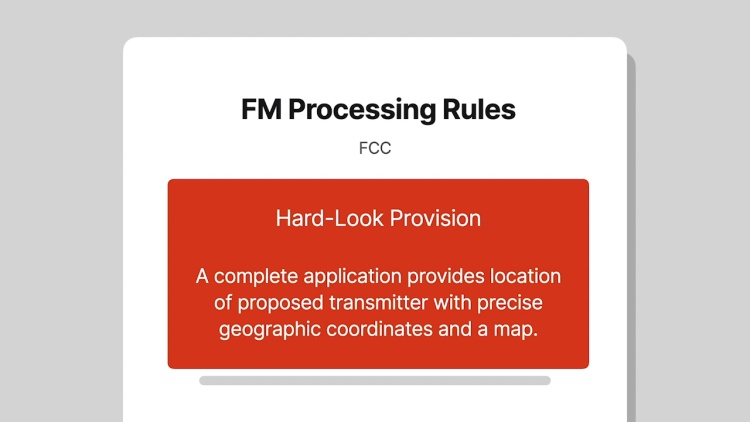JEM Broadcasting Company, Inc. v. Federal Communications Commission
United States Court of Appeals for the District of Columbia Circuit
22 F.3d 320 (1994)

- Written by Eric Cervone, LLM
Facts
In 1985, the Federal Communications Commission (FCC) (defendant) adopted “hard-look” regulations in anticipation of a flood of FM license applications. These regulations established a fixed filing period for all applications requesting the use of a particular FM channel. Applications filed within this period were to be evaluated for “substantial completeness.” The applications that met this standard were accepted for tender, and those that did not were returned without an opportunity for the filing of a curative amendment. Additionally, under the hard-look rules, if an application contained incorrect or inconsistent data, it was deemed unacceptable for tender and returned without an opportunity to amend. In 1988, JEM Broadcasting Company, Inc. (JEM) (plaintiff) filed a license application for a new FM station with the FCC. Upon finding geographic coordinates provided in the application to be inconsistent, the FCC dismissed the application without providing JEM an opportunity to correct its error. JEM argued that the hard-look rules could not be used against it because the rules were promulgated without adhering to the notice-and-comment requirements of the Administrative Procedure Act (APA). JEM appealed the FCC's decision to the United States Court of Appeals for the District of Columbia Circuit.
Rule of Law
Issue
Holding and Reasoning (Edwards, J.)
What to do next…
Here's why 907,000 law students have relied on our case briefs:
- Written by law professors and practitioners, not other law students. 47,100 briefs, keyed to 996 casebooks. Top-notch customer support.
- The right amount of information, includes the facts, issues, rule of law, holding and reasoning, and any concurrences and dissents.
- Access in your classes, works on your mobile and tablet. Massive library of related video lessons and high quality multiple-choice questions.
- Easy to use, uniform format for every case brief. Written in plain English, not in legalese. Our briefs summarize and simplify; they don’t just repeat the court’s language.





